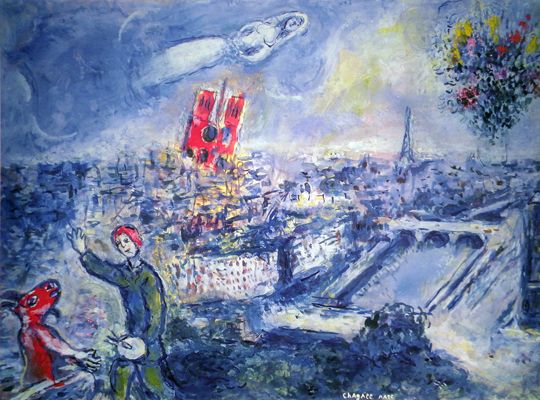
One of the biggest challenges of writing fiction is how liberating it can be. At the outset, it can feel exhilarating to spin an entirely fabricated world of your own design, but most writers don’t get very far before they begin to feel overwhelmed by the sheer number of unsupervised choices they have to make. And no matter how much you felt like you were in charge at the outset, it’s all too easy to get a few chapters in and feel the reins slipping from your hands. And that’s never a comfortable feeling. No one wants to grasp the tail of a dream only to feel it slipping from their fingers. That said, there are both helpful and not-so-helpful ways of handling this inevitability.
It is helpful to understand that whether you run a Fortune 500 or can organize a laundry room to within an inch of its life, your writing will not respond to your usual project management methods. In fact, the more severely you impose your timelines and goals and outlines on your fiction, the faster it will turn its back on you and dig in its heels. You are drawing on your subconscious and your imagination to harness your unique way of seeing the world. Trust me when I say these things to not respond well to seat belts and leashes.
Unfortunately, many people don’t recognize the warning signs before their inner control freaks snatch the wheel with their bony, white-knuckled hands. Yet I’ve seen a particular kind of collateral damage time and time again in the pages of a newly hatched book, or one that is apparently refusing to evolve. I like to the think of it as The Paris Effect. At some point, probably when the author realized she was navigating an ocean of consciousness in a homemade dinghy, she unwittingly reached for a commercial barge. Faced with the thin, early sketches of characters and scenes and settings that need her heart, soul, and acres of patience to grow into fruition, the nascent novelist suddenly has a brilliant idea. She’ll set everything in Paris! Or Rome! Or both!
And for a while, she’ll feel enormous relief. There’s sanctuary in the known, after all. And I’m not saying we should deny ourselves that sanctuary; but I do think we need to take care to keep it out of our novels. Because unless your version of Paris has your main character chatting up a red, bearded, billy goat, it isn’t yours. Paris has saturated the collective unconscious, as have so many other cultural icons and commercial heavy hitters. And while such cultural rock stars might deliver delicious and true pleasures, they don’t belong in your novel, because the minute they appear, they eclipse everything around them, sort of like dropping Godzilla into your friendly neighborhood paleontology exhibit. Another way to think about it is that everything that’s ever been said about Paris comes along with it when you use it. It’s like saying I love you in the opening page; you’ve landed a linguistic atom bomb in the novel long before the small, sure voice that is only yours had a chance to even call for help.
So if you’re looking for some something familiar and undeniable, take a trip to Target and marvel over how the Cheerios box doesn’t look a bit different than it did when it stood on your circa 1968 breakfast table. Or call your mother and tell her you have the sniffles and lip sync her admonishments and advice. Just don’t infect your novel with your desire to find shelter under existing cultural superstars because ultimately, this will just reflect someone else’s light. If, on the other hand, you’re willing to wait until the clouds of your own, peculiar uncertainties clear, the view you’ll get to witness afterward is unparalleled. And it will be so much more meaningful than Paris.
Art: Marc Chagall, View of Paris
Hear hear!!
thank you
Thank you for pointing out an interesting element to keep in mind.